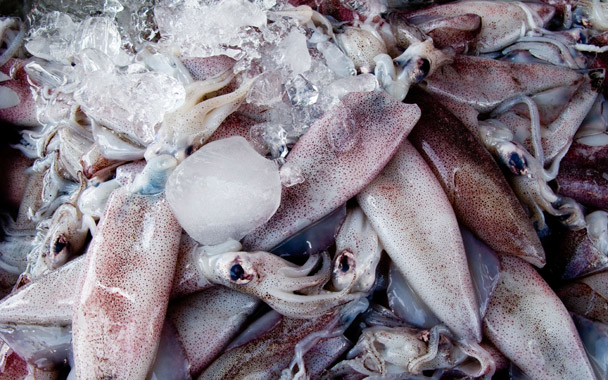Here’s one more reason to shop for fish in coastal towns: squid. If you live further inland you can get them frozen, an abuse they abide more gracefully than most seafood. But when you buy them in a harbor town they have much better flavor: gently meaty and completely marine without being fishy. I’ve loved them on both coasts of the US and find the ones fished from the North Sea and delivered to Hamburg to be just as satisfying.
And here’s the thing about squid: they’re good almost no matter how you make them. At home I dredge them in flour, egg, and panko bread crumbs and deep-fry them for a terrific version of a bar snack. But they’re great stir-fried or sautéed, too, or oven-roasted until they’re just brown. Cooked fast like this they stay a little firm to the tooth, and you can contrast this with something crunchy—deep-fried scallions showered over the top, or strips of peppers in with fermented black beans in a stir fry, or tossed with sharp greens in a salad. Or you can play the texture against something smooth like a garlicky mayonnaise. And don’t forget squid’s natural affinity for pork and for spice, or for both in combination.
If you can’t cook squid quickly you should cook them forever, or at least for a couple of hours, so they can pass through that awkward chewy, rubber band phase. I’m in love with a dish of braised squid and Swiss chard cooked for a couple of hours in red wine. (The idea comes from a recipe in Faith Willinger’s Red, White, and Greens.) The chard retains a distant memory of its structure, the squid gets all silky and nice, and the acidity of the wine focuses the palate on the subtle bitterness of the greens and sweetness of the squid. Perfect for a cool summer’s night.
Besides, how many classes of invertebrates have their own fan club?




 Pinterest
Pinterest


